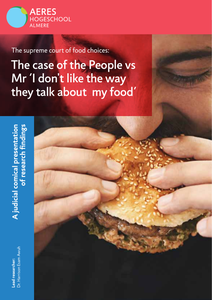We focus in the current study on associations between personality, multicultural attitudes, and perceived ethnic outgroup distance in the Netherlands. Data were collected among four different ethnic groups (from low to high in terms of ethnic hierarchy): Turkish/Moroccan-Dutch, Antillean/Surinamese-Dutch, Mixed Western immigrants, and Dutch majority group members. We found support for a mediation model in which in all groups multicultural attitudes mediate the relation between personality traits, education level, and age as antecedents, and outgroup distance as outcome; age was the only antecedent that also had a direct effect on outcome. Education was positively related to multiculturalism in the groups high in the hierarchy and unrelated in the groups low in the hierarchy. The association between multicultural attitudes and outgroup distance was negative and stronger for the groups higher in the ethnic hierarchy; hierarchy was unrelated to outgroup distance. Groups higher in the hierarchy scored lower on multicultural attitudes. It was concluded that multicultural attitudes and outgroup distance are important for understanding intergroup dynamics in ethnically diverse societies.
LINK
Public transgressions by group members threaten the public image of a group when outside observers perceive them as representative of the group in general. In three studies, we tested the effectiveness of rejection of a deviant group member who made a racist comment in public, and compared this to several other strategies the group could employ to protect their image. In Study 1 (N¼75) and Study 2 (N¼51), the group was judged less racist after rejecting the deviant than after claiming a non-racist position or not responding to the transgression. Perceived typicality of the deviant partially mediated this effect in Study 2. In Study 3 (N¼81), the group was judged least racist after forcing the deviant to apologize and as most racist after denying the severity of the transgression. Results also showed a negative side-effect of rejection. Perceived exclusion of the deviant contributed to a perception of the group as disloyal to its members, which resulted in a less favorable overall group evaluation. Potential benefits and risks of rejection, denial, and apologies are further discussed in the General Discussion.
DOCUMENT
DOCUMENT
Carnitine/choline acyltransferases play diverse roles in energy metabolism and neuronal signalling. Our knowledge of their evolutionary relationships, important for functional understanding, is incomplete. Therefore, we aimed to determine the evolutionary relationships of these eukaryotic transferases. We performed extensivephylogenetic and intron position analyses. We found that mammalian intramitochondrial CPT2 is most closely related to cytosolic yeast carnitine transferases (Sc-YAT1 and 2), whereas the other members of the family are related to intraorganellar yeast Sc-CAT2. Therefore, the cytosolically active CPT1 more closely resembles intramitochondrial ancestors than CPT2. The choline acetyltransferase is closely related to carnitine acetyltransferase and shows lower evolutionary rates than long chain acyltransferases. In the CPT1 family several duplications occurred during animal radiation, leading to the isoforms CPT1A, CPT1B and CPT1C. In addition, we found five CPT1-like genes in Caenorhabditis elegans that strongly group to the CPT1 family. The long branch leading to mammalian brain isoform CPT1C suggests that either strong positive or relaxed evolution has taken place on this node. The presented evolutionary delineation of carnitine/choline acyltransferases adds to current knowledge on their functions and provides tangible leads for further experimental research.
DOCUMENT

This booklet outlines a 'court case' about shaming someone's food choices. Dit boekwerk behandelt een 'rechtszaak' over het te schande maken van iemands voedselkeuzes.
DOCUMENT

In the social sciences, especially in social psychology and sociology, fear of the unknown and the tendency to favour the group one belongs to are recognised phenomena. This chapter will look at elements of these scientific theories and establish a link between these elements and the initial findings of a study of Syrian refugees on the Dutch labour market. First, this study is described, after which a glimpse into the world of social psychology is provided. This chapter concludes by taking a wide perspective on Dutch society and by discussing some lessons that can be learned for a diverse future. Research and education can support society in highlighting the importance of diversity and in training people to recognise the added value of diversity. Everyone will need to put considerable effort into ensuring people are judged for their personal qualities. Lecturers and professionals will need to examine their own judgements and biases first, before they can help to shape the perceptions of students. Together with students, lecturers can promote the benefits of the contact hypothesis and the concept of interactional diversity.
DOCUMENT

Baarts presentiebenadering is even inspirerend voor de professionele beroepspraktijk als problematisch in haar theoretische grondslagen. In deze benadering bestaat een fundamentele morele spanning tussen gebroken waardigheid als het kernprobleem van armoede en het goede leven als de overkoepelende oplossing hiervoor. In deze spanning interfereren drie verschillende culturele onderstromen: een optimistisch Griekse, een radicaal christelijke en een gematigd humanistische onderstroom. Terwijl Baart in zijn magnum opus nadrukkelijk stelt dat presentiebeoefenaars het goede oftewel het gelukkige leven centraal behoren te stellen, poneert dit artikel dat de praktijken en paradoxen van de presentiebeoefening beter kunnen worden begrepen als het herstellen van waardigheid.
DOCUMENT
